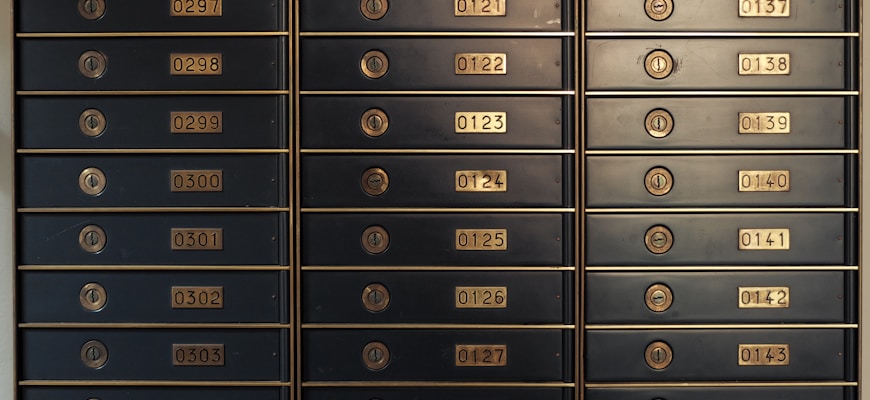Crypto Wallets Explained: How to Store Your Digital Assets Safely

- Understanding the Basics of Crypto Wallets
- Types of Crypto Wallets and Their Features
- Securing Your Digital Assets with Crypto Wallets
- Tips for Choosing the Right Crypto Wallet for You
- Best Practices for Storing Cryptocurrency Safely
- Exploring the Future of Crypto Wallet Technology
Understanding the Basics of Crypto Wallets
When it comes to cryptocurrency, one of the most important aspects to understand is how to store your digital assets safely. This is where crypto wallets come into play. Crypto wallets are digital tools that allow you to securely store, send, and receive cryptocurrencies like Bitcoin, Ethereum, and others.
There are several types of crypto wallets, each with its own unique features and security measures. The two main categories of crypto wallets are hot wallets and cold wallets. Hot wallets are connected to the internet and are more convenient for frequent trading, while cold wallets are offline and provide an extra layer of security.
Within these categories, there are further distinctions to consider. For example, hot wallets can be further divided into online wallets, which are hosted on the cloud, and desktop wallets, which are downloaded and installed on your computer. Cold wallets, on the other hand, can be in the form of hardware wallets, which are physical devices that store your keys offline, or paper wallets, which are simply pieces of paper with your private keys written on them.
Types of Crypto Wallets and Their Features
When it comes to storing your digital assets safely, there are various types of crypto wallets available to choose from. Each type of wallet has its own unique features and benefits that cater to different needs and preferences. Here are some of the most common types of crypto wallets and what sets them apart:
**Hardware Wallets**: Hardware wallets are physical devices that store your private keys offline, making them less vulnerable to hacking or cyber attacks. These wallets offer enhanced security measures, such as PIN protection and encryption, to keep your digital assets safe. Some popular hardware wallets include Ledger Nano S, Trezor, and KeepKey.
**Desktop Wallets**: Desktop wallets are software applications that you can download and install on your computer. They provide a convenient way to access your digital assets while still keeping them secure. Desktop wallets are typically more secure than online wallets since they are less susceptible to online threats. Examples of desktop wallets include Exodus, Electrum, and Atomic Wallet.
**Mobile Wallets**: Mobile wallets are apps that you can download on your smartphone or tablet to store and manage your digital assets on the go. These wallets are convenient for making quick transactions and accessing your funds anytime, anywhere. Some popular mobile wallets are Trust Wallet, Coinbase Wallet, and MyEtherWallet.
**Online Wallets**: Online wallets, also known as web wallets, are cloud-based wallets that you can access through a web browser. While online wallets are convenient and easy to use, they are considered less secure compared to hardware or desktop wallets since they are connected to the internet. Examples of online wallets include Blockchain.info, BitPay, and CoinPayments.
**Paper Wallets**: Paper wallets are physical documents that contain your public and private keys, printed on a piece of paper. They are considered one of the most secure ways to store your digital assets since they are not connected to the internet. However, paper wallets can be easily lost, damaged, or stolen if not stored properly. To create a paper wallet, you can use services like WalletGenerator.net or MyEtherWallet.
In conclusion, choosing the right type of crypto wallet depends on your security preferences, convenience, and level of expertise. It’s essential to research and compare different wallet options to find the one that best suits your needs and helps you store your digital assets safely.
Securing Your Digital Assets with Crypto Wallets
When it comes to securing your digital assets with crypto wallets, it is essential to choose a wallet that offers robust security features. One of the most common types of crypto wallets is a hardware wallet, which is a physical device that stores your private keys offline, away from potential hackers. This provides an extra layer of protection compared to online wallets, which are more susceptible to cyber attacks.
Another option for securing your digital assets is a paper wallet, which involves printing out your private keys and storing them in a secure location. While this method is offline and less vulnerable to hacking, it is important to keep your paper wallet safe from physical threats such as fire or water damage.
Regardless of the type of crypto wallet you choose, it is crucial to follow best practices for keeping your digital assets safe. This includes regularly backing up your wallet, using strong passwords, enabling two-factor authentication, and being cautious of phishing scams.
By taking these necessary precautions, you can safeguard your digital assets and have peace of mind knowing that your investments are secure. Remember, the crypto space can be unpredictable, so it is always better to be safe than sorry when it comes to protecting your hard-earned assets.
Tips for Choosing the Right Crypto Wallet for You
When choosing the right crypto wallet for your digital assets, there are several factors to consider to ensure the safety and security of your investments. One important consideration is the type of wallet you want to use. There are various types of wallets available, including hardware wallets, software wallets, and online wallets. Hardware wallets are physical devices that store your private keys offline, making them less vulnerable to hacking. Software wallets are applications that you can download onto your computer or smartphone, while online wallets are cloud-based services that store your keys on remote servers.
Another factor to consider when choosing a crypto wallet is the level of security it offers. Look for wallets that offer two-factor authentication, encryption, and other security features to protect your assets from unauthorized access. Additionally, consider the reputation of the wallet provider and read reviews from other users to ensure you are choosing a reputable and trustworthy service.
It is also important to consider the ease of use of the wallet. Look for a wallet that has a user-friendly interface and provides clear instructions on how to set up and use the wallet. Consider whether the wallet supports the cryptocurrencies you plan to store and trade, as not all wallets support every type of digital asset.
Finally, consider the cost of using the wallet. Some wallets are free to use, while others may charge fees for transactions or other services. Consider your budget and how much you are willing to pay for the convenience and security of using a particular wallet. By considering these factors and doing your research, you can choose the right crypto wallet for your needs and keep your digital assets safe and secure.
Best Practices for Storing Cryptocurrency Safely
When it comes to storing your cryptocurrency safely, there are several best practices you should keep in mind to ensure the security of your digital assets. Here are some tips to help you protect your crypto wallet:
- Use a hardware wallet: Consider storing the majority of your cryptocurrency in a hardware wallet, which is a physical device that stores your private keys offline. This provides an extra layer of security compared to online wallets.
- Backup your wallet: Make sure to regularly backup your wallet and store the backup in a secure location. This will help you recover your funds in case your wallet is lost or damaged.
- Enable two-factor authentication: Add an extra layer of security to your online wallets by enabling two-factor authentication. This will require you to provide a second form of verification, such as a code sent to your phone, when accessing your wallet.
- Avoid public Wi-Fi: When accessing your cryptocurrency wallet, avoid using public Wi-Fi networks, as they may not be secure. Instead, use a trusted and secure internet connection to prevent potential hacking attempts.
- Keep your software up to date: Regularly update your wallet software to ensure that you have the latest security features and bug fixes. This will help protect your funds from potential vulnerabilities.
By following these best practices, you can help safeguard your cryptocurrency and minimize the risk of theft or loss. Remember to always prioritize security when it comes to storing your digital assets to protect your investment.
Exploring the Future of Crypto Wallet Technology
Looking ahead to the future, the development of crypto wallet technology continues to evolve rapidly. As the demand for secure and user-friendly storage solutions for digital assets grows, wallet providers are constantly innovating to meet the needs of their users.
One of the key trends in the future of crypto wallets is the integration of multi-signature technology. This feature requires multiple private keys to authorize a transaction, adding an extra layer of security to the wallet. Additionally, advancements in biometric authentication, such as fingerprint or facial recognition, are becoming more prevalent in crypto wallets, further enhancing security measures.
Another area of development in crypto wallet technology is the incorporation of decentralized finance (DeFi) capabilities. Wallets that support DeFi allow users to access a wide range of financial services, such as lending, borrowing, and trading, directly from their wallets. This integration streamlines the user experience and opens up new opportunities for managing digital assets.
Furthermore, the future of crypto wallets may see increased interoperability between different blockchain networks. This would enable users to manage a diverse portfolio of digital assets across various blockchains from a single wallet interface. By simplifying the management of multiple assets, interoperable wallets offer greater convenience and efficiency to users.



